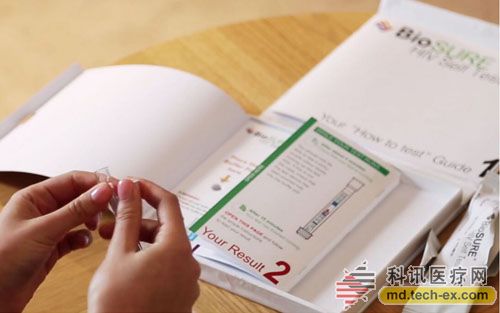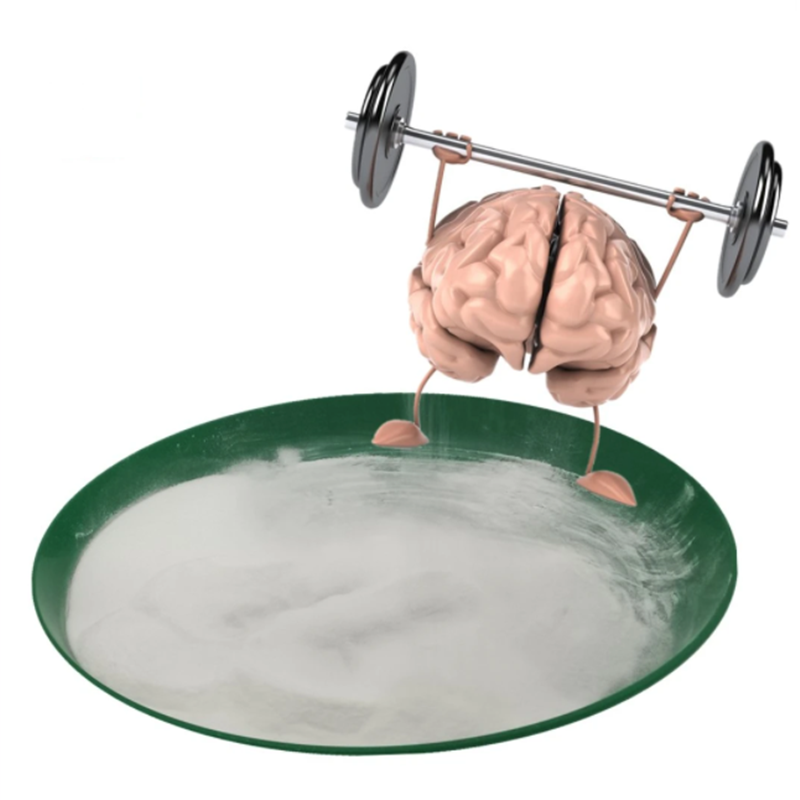Release date: 2015-05-05

AIDS is a rapid infectious disease. After normal people infected with AIDS, there is no clinical symptoms in the early stage. Therefore, if it is not checked, it is likely to cause the re-distribution of HIV. When Bill Gates announced his new challenge plan, he hoped that there would be a device that can quickly diagnose AIDS, and can accept different samples such as blood and saliva. The price is close to the people, trustworthy, and can only generate electricity in one day. The small clinic runs for hours. In the past two years, there have been more and more such rapid inspection equipment. Recently, the first AIDS home test kit was launched on the UK market.
The kit is produced by BioSure UK and displays results in 15 minutes with an accuracy of 99.7%. According to the BioSure website, the package has passed extensive review and passed the CE certification of European regulators.
The kit is available online for £29.95 and includes a syringe and other parts that can be tested with just one drop of blood.
However, the accuracy of the test equipment in the initial stages of the disease is not high, BioSure warned on its official website that they may not be able to detect HIV-infected patients in the past three months, in other words, three months after the virus infection. The success rate of post-testing will be larger.
If the BioSure device detects a positive result, BioSure will assign a doctor to the patient for subsequent testing to confirm the diagnosis.
Currently, this product is not available in Northern Ireland as it is prohibited to use household testing products in the area.
If you feel that this test is too expensive and wants to do a free HIV test, you can go to the NHS in the UK.
Further reading: other similar products on the market
——Detecting AIDS with mobile phone is also a result of 15 minutes
A team led by Samuel K. Sia, an associate professor in the Department of Biomedical Engineering at Columbia University, invented a low-cost mobile phone accessory that, when used in conjunction with a cell phone, can simultaneously detect three infectious diseases within 15 minutes by detecting blood samples from fingers. Markers include HIV antibodies, Treponema pallidum-specific antibodies, and Treponema pallidum non-specific antibodies.
In this study, medical staff examined finger blood samples from 96 patients and found that the device's detection rate for HIV and syphilis was as high as 92% to 100%, depending on the type of disease. The manufacturing cost of the device is about $34, which is much lower than the cost of equipment for completing the ELISA test ($18,450).
The accessory replicates the mechanical, optical and electronic functions of the laboratory blood test equipment at a time. Specifically, it completes the process of enzyme-linked immunosorbent assay (ELISA) by connecting to a smartphone or computer. Compared to traditional laboratory testing, this invention has two advantages:
First, it solved the problem of energy supply. It works fine in places that are not powered 24 hours a day.
Second, it is more convenient and straightforward to obtain test results. The test subject can detect HIV and syphilis by placing a finger on a button and dropping a drop of blood into it by acupuncture. Once the test is complete, the results can be displayed directly on the screen of the smart device.
The vast majority of patients (97%) said they recommend the use of this accessory for testing because of its short cycle, simple process, and the ability to detect multiple diseases simultaneously. Sia said: "Our research results show that a simple accessory combined with a smart phone can complete a complete laboratory quality immunoassay. We hope to bring this product to developing countries as soon as possible, and we look forward to developing this More features of the device."
——Detecting AIDS with a hot water bottle as a heat source, and can be used in rural areas without electricity
The National Institutes of Health (NIH) National Biomedical Imaging and Bioengineering (NIBIB) Institute led a team to develop a low-cost, power-independent device for detecting infectious pathogens - the NINA system, which can be used The DNA of HIV-1 was detected. The device provides thermal energy for amplification and detection of pathogenic DNA or RNA in blood samples of suspected infected persons by simple chemical reactions without the use of electricity.
The process of amplification involves extracting nucleotides from individual blood samples, mixing with nucleotide fragments of the target pathogen, and obtaining a plurality of amplified pathogenic bacterial nucleotides present in the blood sample by constant temperature heating. The above test results are highly accurate, and when the pathogenic nucleotides appear, it is convenient to visualize the results by simple test paper color development.
The device uses inexpensive adiabatic thermos as a heat source for chemical reactions, and the latest version of the incubator uses magnesium-iron alloy (MgFe) to generate heat. The choice of MgFe is only 6 cents to complete a reaction because it is cheap, and because it can be made into a separate package. The technician can simply initiate the heat generation reaction by simply adding a salt solution to the bag at the bottom of the thermos.
The researchers ensured the performance of the various components in the incubator during development to ensure a constant temperature for the amplification reactions performed in the small tubes. To achieve this, the research team developed a special component that stores and regulates the heat generated by the chemical reaction, which can be easily mounted on the tube holder to ensure uniform heating on each tube surface. When designing the main part of the device, the research team used a thermal imaging camera to evaluate the performance of inexpensive materials and finally chose a reusable thermos to minimize heat loss from the device.
Another key point in the study was that the incubator in the device had to be up and running. The instruments in the fine diagnostic laboratory operate at room temperature and manually controlled conditions, and the device must be operated at extreme ambient temperatures. The reaction inside the incubator must be maintained at 60 degrees Celsius within one hour. The team therefore tested the performance of the NINA incubator for normal operation over a range of ambient temperatures. The device can maintain an internal temperature of 60 degrees Celsius when the external ambient temperature is between 10 degrees Celsius and 32 degrees Celsius.
With this system, sensitive and reproducible HIV-1 testing services can be delivered in 80 minutes. Currently, researchers are equipping the amplification system with a simple on-site blood sample nucleotide extraction technique. This technology is not only suitable for HIV testing, but also for other infectious disease detection, especially for remote areas where power resources and refrigeration equipment are scarce, lack of properly trained medical staff, HIV and other infectious diseases are particularly difficult to diagnose. .
Source: Bio-Exploration
Our company specializes in providing Nootropics raw materials -Nootropics Nootropics Nootropics powder Nootropic Active Pharmaceutical Ingredients Nootropics peptides
We also provide Active Pharmaceutical Ingredients // Bodybuilding Peptide //Sarms and so on

Nootropics , Nootropics powder , Nootropic Active Pharmaceutical Ingredients , Nootropics peptides
XI AN RHINE BIOLOGICAL TECHNOLOGY CO.,LTD , https://www.rhinebioteches.com